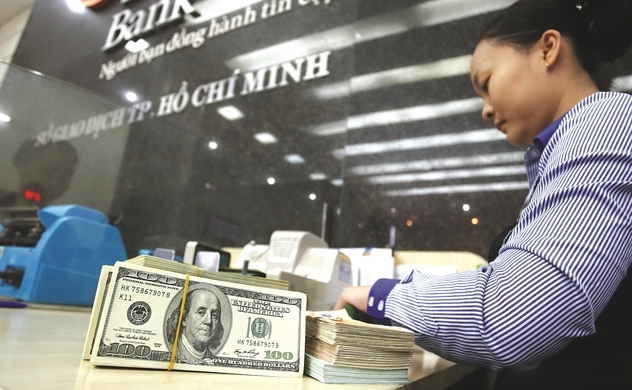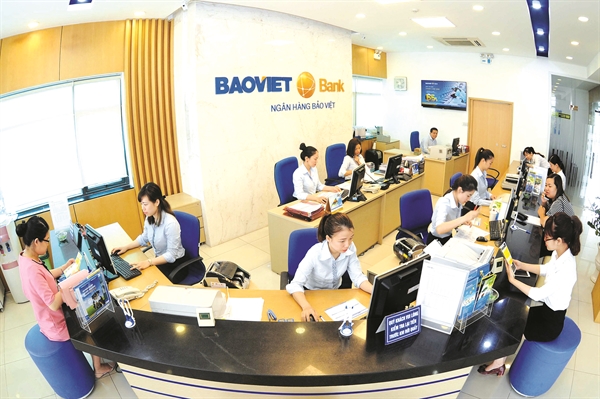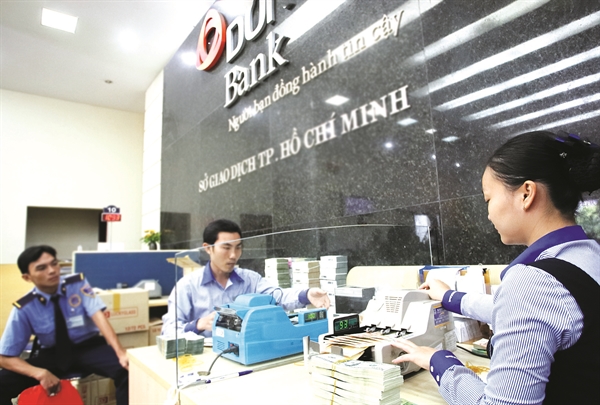Vietnam’s small banks struggle for more capital inflows

Photo: QH
DongA Bank shareholders finally had an annual general meeting organized recently, after a pause since 2015. At the time, this bank was put under intensive monitoring by the State Bank of Vietnam while trials against the bank’s former officials was conducted.
In May 2019, the bank had a new chairman for the board of directors, a new general director and a new supervisory board. The State Bank of Vietnam wants to appoint the new leaders for the bank’s better operations, risk management after a series of incidents in recent years.
Although issues discussed during DongA Bank’s shareholders' meeting were unclear, the development offered hopes for other small banks. Earlier, it was said that foreign investors wanted to invest in OceanBank and Construction Bank.
 |
| Photo: cbbank.vn |
The banks are chasing for 2020 deadlines as required in the scheme of credit institution system restructure and dealing with bad debts for the period 2016-2020. The central bank’s scheme aims at addressing thoroughly bad debts and weak credit institutions. However, the progress has been evaluated as slow.
Apart from DongA Bank under special monitor, Vietnam Construction Bank, Ocean Bank and Petrolimex Bank acquired by the State Bank of Vietnam, there are still three to four credit institutions are under scrutiny.
Besides, several other small lenders are restructuring themselves for upgrading and surviving in the market.
For years, the market has about 15 small banks having chartered capital of less than $258.6 million. Of the banks, there are nine with chartered capital of less than $172 million.
During the past two years, the market paid much attention to large banks which also face pressure in raising capital for better operation. Small banks are also under the same pressure.
Business results of these banks are unfavorable due to increasingly competitiveness in the market. For example, Vietnam Asia Commercial Bank reported after tax profit at only $2.8 million in the first half of 2019, down nearly 26% over the same period last year.
 |
| Photo: Vietnambiz.vn |
Bao Viet Bank had worse a business result with nearly $473,000 in profit, down 42.4% over the same period. The bank’s outstanding loans reduced by 3.1% in compared with the beginning of 2019, at $1.06 billion, equivalent to it total assets.
In general, being contrast with large banks that report high profits, small lenders collect modest business results.
The biggest challenge for small banks is the mobilized capital. Small banks who want mobilized capital have to raise deposit interest rates. Human resource is also another challenge for small banks. In recent years, the senior staff at these banks has been constantly quitting job.
Wait for new capital inflows
The shareholders’ meeting of DongA Bank was seen a good signal for the market. It is likely that the upcoming meeting will discuss about its restructuring plan and the key issue is how to increase chartered capital to maintain operations.
Accordingly, authorities submitted the government restructuring plans for DongA Bank. Regardless of the scenario, additional capital is required for the bank. Shareholders have to contribute to the chartered capital. If they do not agree to contribute, they may lose control of the bank, which is in negative equity.
Another possible solution for this bank is to merge with another bank. Previously, DongA Bank itself had rumors of merging with other private banks.
Currently, state-owned banks are to provide support to weak banks. Vietcombank has to support Construction Bank.
 |
| Photo: Quy Hoa |
Beside DongA Bank, restructuring weak banks is receiving positive signals. For example, J Trust (Japan) has expressed an interest in participating in the restructuring of the Construction Bank. Transferring and restructuring options have been discussed.
Notably, acquisition activities among small banks had good signals when the CMC Group recently announced full divestment (more than 10%) at Bao Viet Bank.
Since domestic cash flow has reduced for years, the market is now expecting foreign cash flow. Foreign investors want to hold higher ownership ratio for participating deeply in management. The ceiling of 30% has been seen a barrier preventing foreign capital from flowing into local banks.
Meanwhile, with weak banks, foreign investors may almost only purchase corpses, so the negotiation can hardly finish in the early afternoon.
Another important development is that the State Bank of Vietnam recently cut down interest rates. A report from SSI Securities Company commented that this move actually supports reducing costs for banks. It helped small banks to widen markets and stabilizing the market.
The market is waiting for 2020, a milestone of many significant new policies for the banking system, from debt settlement to cash flow rebalancing. With deeper international integration, banker should have better strategies and clearer mindsets for better business results.

 TIẾNG VIỆT
TIẾNG VIỆT 
















